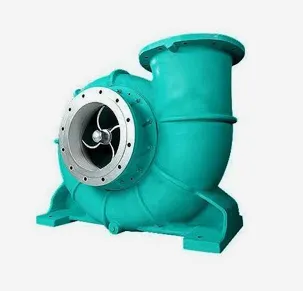English
- Afrikaans
- Albanian
- Amharic
- Arabic
- Armenian
- Azerbaijani
- Basque
- Belarusian
- Bengali
- Bosnian
- Bulgarian
- Catalan
- Cebuano
- Corsican
- Croatian
- Czech
- Danish
- Dutch
- English
- Esperanto
- Estonian
- Finnish
- French
- Frisian
- Galician
- Georgian
- German
- Greek
- Gujarati
- Haitian Creole
- hausa
- hawaiian
- Hebrew
- Hindi
- Miao
- Hungarian
- Icelandic
- igbo
- Indonesian
- irish
- Italian
- Japanese
- Javanese
- Kannada
- kazakh
- Khmer
- Rwandese
- Korean
- Kurdish
- Kyrgyz
- Lao
- Latin
- Latvian
- Lithuanian
- Luxembourgish
- Macedonian
- Malgashi
- Malay
- Malayalam
- Maltese
- Maori
- Marathi
- Mongolian
- Myanmar
- Nepali
- Norwegian
- Norwegian
- Occitan
- Pashto
- Persian
- Polish
- Portuguese
- Punjabi
- Romanian
- Russian
- Samoan
- Scottish Gaelic
- Serbian
- Sesotho
- Shona
- Sindhi
- Sinhala
- Slovak
- Slovenian
- Somali
- Spanish
- Sundanese
- Swahili
- Swedish
- Tagalog
- Tajik
- Tamil
- Tatar
- Telugu
- Thai
- Turkish
- Turkmen
- Ukrainian
- Urdu
- Uighur
- Uzbek
- Vietnamese
- Welsh
- Bantu
- Yiddish
- Yoruba
- Zulu
Telephone: +86 13120555503
Email: frank@cypump.com
Sep . 11, 2024 03:12 Back to list
Pumps in Chemical Engineering - Comprehensive Guide and Applications
Pumps in Chemical Engineering An Overview
Pumps play a critical role in chemical engineering, serving as essential components in various processes that involve the movement of fluids. From transporting raw materials to the final disposal of waste, pumps ensure the efficient and reliable handling of liquids and slurries within chemical plants. Understanding the types of pumps and their applications is crucial for optimizing performance and maintaining safety standards in chemical engineering.
Types of Pumps
In the realm of chemical engineering, there are two primary categories of pumps positive displacement pumps and dynamic (or centrifugal) pumps
.1. Positive Displacement Pumps These pumps work by trapping a fixed amount of fluid and forcing it out into the discharge pipe. They are ideal for applications requiring high viscosity fluids or precise flow rates. Common types include gear pumps, diaphragm pumps, and screw pumps. For instance, gear pumps are widely used in the transfer of viscous fluids, while diaphragm pumps are suitable for corrosive and shear-sensitive fluids.
2. Centrifugal Pumps Unlike positive displacement pumps, centrifugal pumps increase the fluid's velocity through rotational kinetic energy supplied by a rotating impeller. This type of pump is prevalent in chemical processing due to its efficient handling of large volumes of low-viscosity liquids. They are often employed in cooling systems, distillation columns, and other applications where consistent flow rates are necessary.
pumps in chemical engineering

Applications and Considerations
In chemical engineering, pumps are used in a myriad of applications, including the mixing of chemicals, transferring fluids between vessels, and even in waste management systems. Each application dictates specific pump requirements, including flow rate, pressure, and compatibility with the fluid being handled.
When selecting a pump for a particular application, several factors must be considered. The fluid's viscosity, temperature, and chemical compatibility are paramount to ensure optimal performance and longevity of the pump. Additionally, the desired flow rate and the system pressure requirements must align with the pump's specifications.
Safety is another critical aspect of pump operation in chemical engineering. Many fluids handled in these processes can be hazardous, requiring pumps to be designed with safety features such as leak detection systems and materials that resist corrosion and erosion. Furthermore, routine maintenance and monitoring of pump performance are essential to prevent failures that could lead to hazardous spills or process interruptions.
Conclusion
In conclusion, pumps are integral to the success and efficiency of chemical engineering operations. The choice between positive displacement and centrifugal pumps depends on the specific requirements of the application. A thorough understanding of pump types, their operational principles, and relevant safety considerations will ultimately lead to improved process efficiency and safety in the chemical industry. As technology advances, the design and operation of pumps continue to evolve, promising even greater efficiency and reliability for future chemical engineering challenges.
-
ISG Series Vertical Pipeline Pump - Chi Yuan Pumps Co., LTD.|High Efficiency, Energy Saving, Low Noise
NewsJul.30,2025
-
ISG Series Vertical Pipeline Pump- Chi Yuan Pumps|High Efficiency&Low Noise
NewsJul.30,2025
-
ISG Series Vertical Pipeline Pump-Chi Yuan Pumps Co., LTD.|High Efficiency&Energy Conservation
NewsJul.30,2025
-
ISG Series Vertical Pipeline Pump - Chi Yuan Pumps Co., LTD.|Advanced Hydraulic Design&Energy-Efficient Solutions
NewsJul.30,2025
-
ISG Series Vertical Pipeline Pump - Chi Yuan Pumps Co., LTD.
NewsJul.30,2025
-
ISG Series Vertical Pipeline Pump - Chi Yuan Pumps Co., LTD.|energy-efficient fluid handling&industrial durability
NewsJul.30,2025










